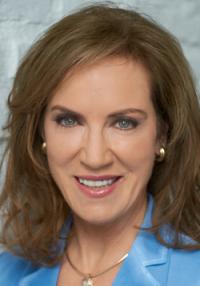Welcome to another episode of “10 Words or Less,” in which I ask brief questions of interesting people, and ask for brief answers in return. Usually, I can describe the guests in a phrase or two, but with Pamela Peeke, today’s guest, I barely know where to begin:
She’s a doctor, and I start there only because she did. But she’s also an assistant clinical professor in medicine at the University of Maryland, was a Pew Foundation scholar in nutrition and metabolism during a post-doc fellowship, and the first physician to be a senior research fellow at the National Institutes of Health Office of Alternative Medicine.
That oughta be enough, but she’s also WebMD’s lifestyle expert, and chief medical correspondent for Discovery Health TV, and a New York Times best-selling author whose latest book is "The Hunger Fix: The Three-Stage Detox and Recovery Plan for Overeating and Food Addiction.”
Dr. Peeke is also senior science advisor to Elements Behavioral Health, the nation's largest residential addiction treatment network, where she has developed their first residential program to treat food and addiction. Her work was recently seen on the "Today Show" profiling her work with the Promises Malibu Vista center.
I should also mention, although It’s barely a hill among all these mountains, that Dr. Peeke has blogged about me and my book, “Fat Boy Thin Man," a couple of times, and we had dinner together with other friends after the recent food-addiction conference sponsored by the University of Massachusetts Medical School.
 After that long list of credentials, I have to ask: Don’t you ever get tired? " They say that if you love what you’re doing, you’ll never work a day in your life. That’s me.”
After that long list of credentials, I have to ask: Don’t you ever get tired? " They say that if you love what you’re doing, you’ll never work a day in your life. That’s me.”
Born when and where "The when will never be disclosed, but I’m a Senior Olympian triathlete, so I have to be over 50. And I was born in San Francisco, California."
Resides now Bethesda, Maryland
Family circumstance "Married, Mark is my handsome hubby. He comes from the land of law enforcement. He was SWAT, executive protection, and crimes systems analyst like the guys on CSI. We’re known as cop and doc.
What did you want to be when you grew up? "It already happened. Is that 10 words or less?"
A news event from childhood that left an impression "JFK’s assassination. I remember exactly where I was, singing in the choir at St. Brendan’s. As young as I was, I cried too, because JFK was a very important icon in our family.
"Your first paying job "That would be with my parents. They owned their own companies, and I actually got a little something for working for them. I helped keep the books. ‘Zero Equals Zero’ was my middle name."
Wisdom you retain from that job "The value of work. I was never given anything. I never felt entitled. I felt it was important to be able to show effort and be rewarded for that effort.
Someone outside your family who was a strong influence "Dr. Henrik Blum at the University of California at Berkeley. He was one of the great names in the school of public health. I met him early on, and became kind of his quasi daughter. He helped guide me as an undergraduate. When I became a graduate student with him, where I got my master’s in public health, he was an incredibly important mentor and I suppose a father figure as well."
 After that long list of credentials, I have to ask: Don’t you ever get tired? " They say that if you love what you’re doing, you’ll never work a day in your life. That’s me.”
After that long list of credentials, I have to ask: Don’t you ever get tired? " They say that if you love what you’re doing, you’ll never work a day in your life. That’s me.”